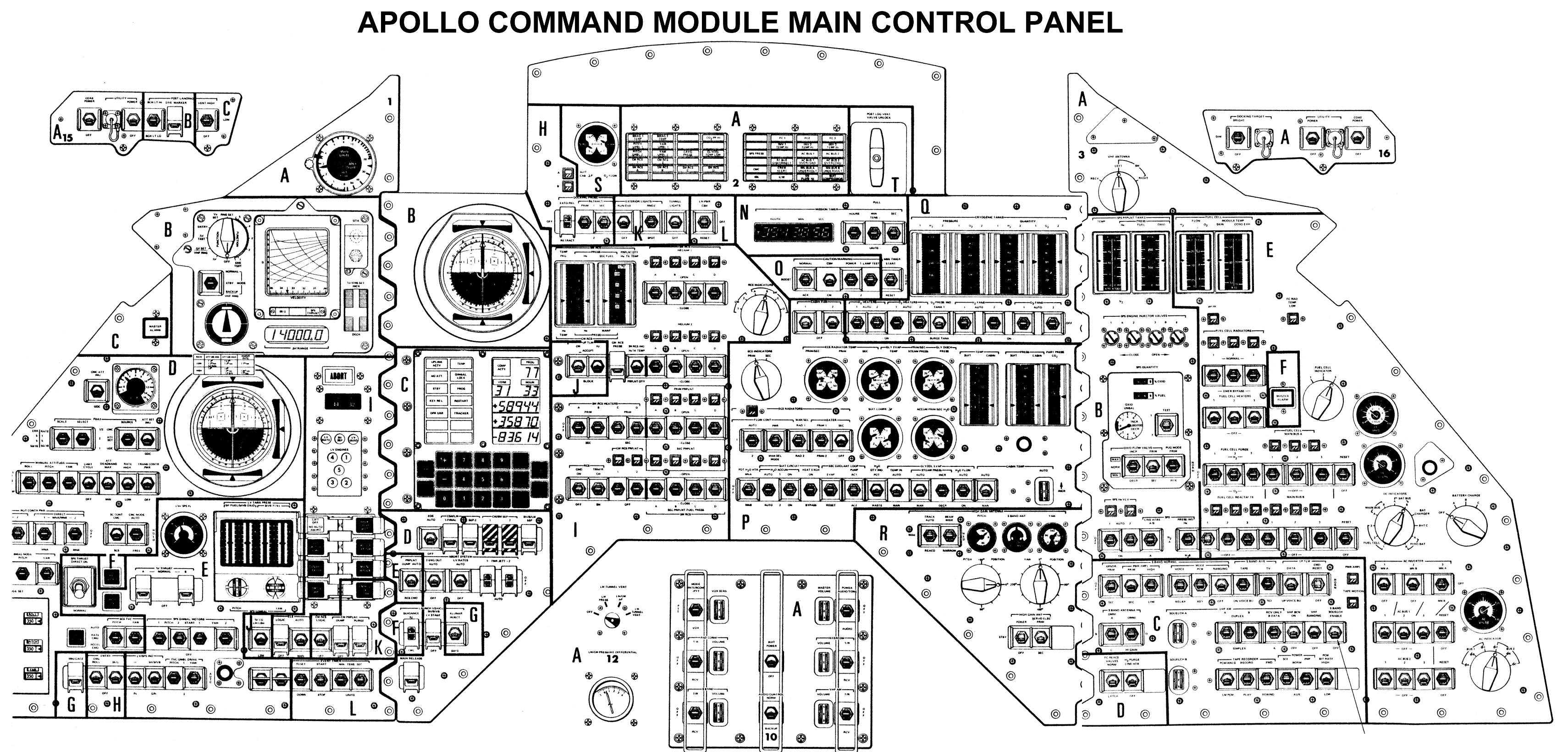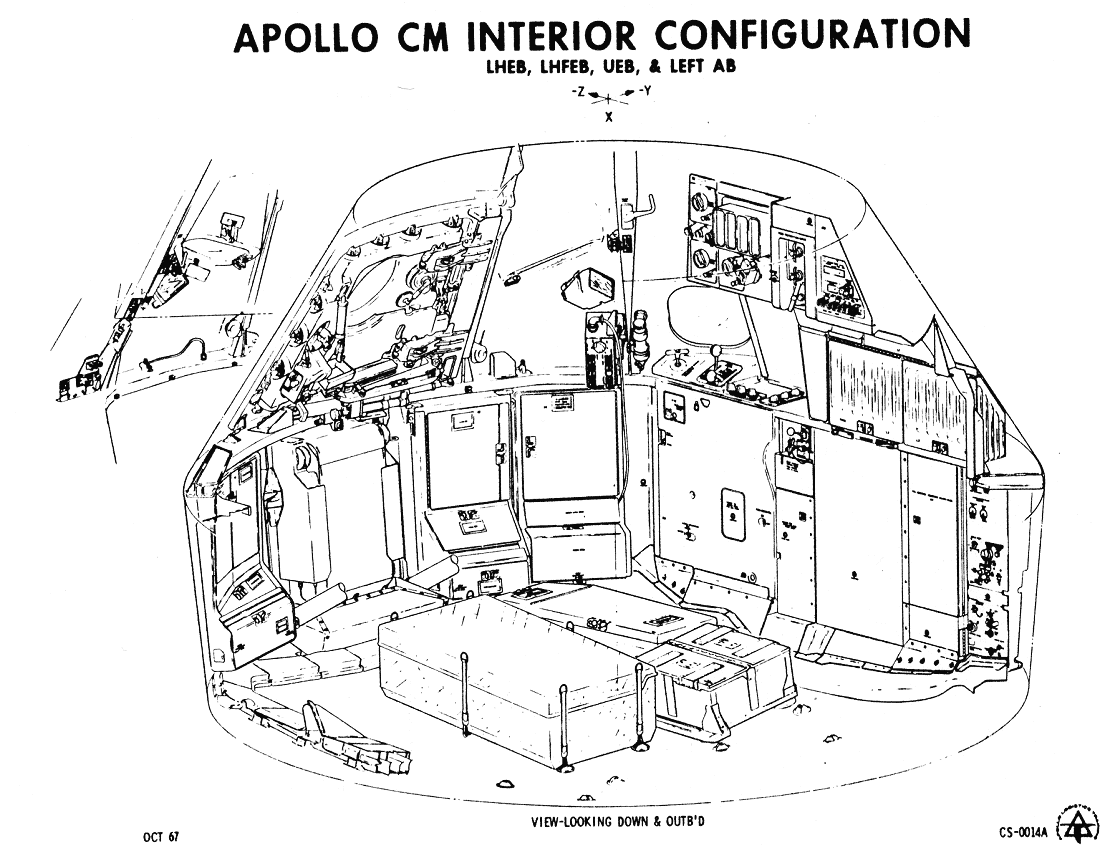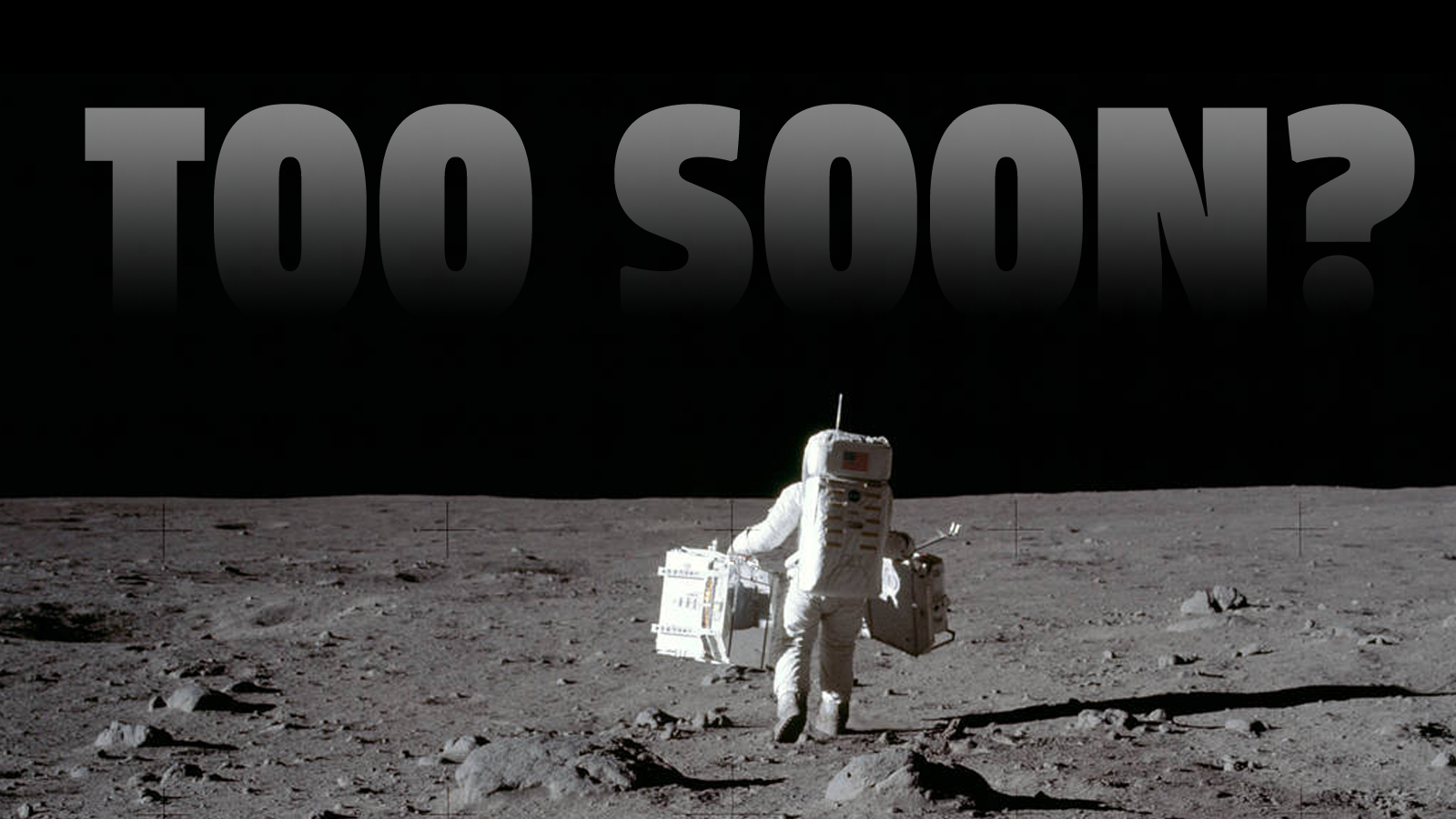We Went To The Moon Way Sooner Than We Should Have And That's Amazing
On May 25, 1961, President John F. Kennedy made a speech to congress that asked what is likely the most audacious, improbable request ever recorded in the history of politics. That speech asked that Congress commit time, money and considerable resources to putting human beings on the surface of the moon—and returning them safely home—before the 1960s were over, less than nine years from the time of the speech. If you really look at where the United States was in terms of space exploration at the time, the speech seems absolutely insane. You know what's even more insane? The fact that, if you'll forgive the spoiler alert—we did it.
Just in case you forgot or have misplaced your commemorative pillow with the speech embroidered on it, I'll refresh you with the relevant part of the speech:
I therefore ask the Congress, above and beyond the increases I have earlier requested for space activities, to provide the funds which are needed to meet the following national goals:
First, I believe that this nation should commit itself to achieving the goal, before this decade is out, of landing a man on the moon and returning him safely to the earth. No single space project in this period will be more impressive to mankind, or more important for the long-range exploration of space; and none will be so difficult or expensive to accomplish. We propose to accelerate the development of the appropriate lunar space craft. We propose to develop alternate liquid and solid fuel boosters, much larger than any now being developed, until certain which is superior. We propose additional funds for other engine development and for unmanned explorations-explorations which are particularly important for one purpose which this nation will never overlook: the survival of the man who first makes this daring flight. But in a very real sense, it will not be one man going to the moon-if we make this judgment affirmatively, it will be an entire nation. For all of us must work to put him there.
Now, let's take a good, hard look at exactly what the American space program had accomplished at this time to give the president the confidence he needed to make such an incredibly grand promise:
Not a whole hell of a lot.
If you want to be harsh, you could say that in the middle of 1961 what the National Aeronautics and Space Administration specialized in was getting embarrassed by the Soviet Union. At the time of Kennedy's speech, these were the space achievements the Soviets had racked up:
First man-made object in space, first animal in space, first spacecraft to pass lunar orbit, first spacecraft to impact the moon, first images of the moon's far side, first safe return of living animals from orbit, first Venus probe, and even the first human in space, and the first human to orbit the Earth.
The United States, on the other hand, had significantly fewer firsts, and had been playing catch-up. At the time of Kennedy's speech, we'd managed to send a human into space as well, Alan Shepard, but only for a short sub-orbital hop, unlike Yuri Gagarin's full orbit in a much larger spacecraft.
It's worth remembering that when Kennedy gave his speech, asking for the considerable resources needed to make his promise, the list of things NASA needed to develop, both in terms of actual hardware and techniques, to actually get to the moon was laughably complex and long:

First, and most obviously, they needed rockets actually powerful enough to reach the moon, and capable of lifting all the mass needed; they needed spacecraft with life support systems capable of handling a crew with multiple people for multiple days; they needed to understand how to feed this crew, how to handle their wastes, how to let them sleep; they needed to know how to communicate with spacecraft at vast distances, how to build a spacecraft that could not just land on the moon, but also a way to launch a return rocket from the moon's surface to return to Earth; they needed computers powerful enough and yet small enough to be integrated into the spacecraft; they needed to know how to perform orbital maneuvers like rendezvous and docking and changing orbits and how to make heat shields capable of reentry at high speeds, and, and, and so much more.
Really, it'd be easier and quicker to list what NASA did know how to do at this point. I'm not saying these things to be some bully trying to make early-60s-era NASA run home crying, I'm saying these things because it's worth remembering exactly how outlandish Kennedy's ambition really was back then.
I know so many of us equate NASA now with the famous Gene Kranz quote from the near-disaster of the Apollo 13 mission, "failure is not an option," but the real truth is that not only was failure a very real option regarding getting to the moon by 1969, it was the one option that could be pretty much guaranteed to have a chance of happening at all. If you were the betting sort around this time, failure would be by far the safest place for your money.
Suggesting America in 1961 pledge to putting a person on the moon by 1969 would be like getting the President today to pledge to have operable, usable nuclear fusion by 2029 or so, if you could get him to stop tweeting hateful things long enough to have some intern Google "nucular fushion" for him.
If you think about all that had to be done to get people on the moon at that time, I don't think it would be unreasonable to say that, had the technology progressed at conventional levels without the intense focus and unheard of resource allocation of the Apollo program, we'd have had our moon landing sometime around, oh, maybe 1981 or so.
But, of course, that's not how it happened, at all. Collectively, we decided that getting to the moon as fast as possible—even if it meant doing so in a way that would not make future lunar exploration any easier—was more important than anything.

There was a certain kind of wonderful and inspiring collective insanity going on then, fueled in part by our fear of the spacefaring and technological prowess of the Soviets, and partially out of a very idiosyncratically human love of accomplishing something new.
In some ways, the moon landing program is perhaps the most deliriously human act ever accomplished, in the sense that it embodies so many of those qualities that really differentiate human beings from just very smart animals who know how to do agriculture and the recipe for corn dogs.
The act itself—even though it fostered incredible technological growth and furthered science dramatically—was essentially a useless act. We weren't trying to get to the moon to mine its resources to improve the quality of human life or to escape some sort of enemy or threat or to find more livable space for people, we were going because it was, well, there.
Kennedy himself effectively said as much in his 1962 speech at Rice University, when the Apollo program was already under way:
We choose to go to the moon. We choose to go to the moon in this decade and do the other things, not because they are easy, but because they are hard, because that goal will serve to organize and measure the best of our energies and skills, because that challenge is one that we are willing to accept, one we are unwilling to postpone, and one which we intend to win, and the others, too.
Look what that's saying, there. It's saying that we're going to the moon because it's very hard to go to the moon, and, well, we really want to see if we can pull it off.
This is such a beautiful, irrational, wonderful human trait, this desire to do and create glorious and technically useless things and acts. This desire is the foundation of all art, from the most numinous Rothko to the shiniest Koons. It's music and comedy and jelly beans that taste like chili and daredevils in star-spangled helmets attempting to jump ravines on motorcycles. It's everything that on paper contributes nothing to the actual business of living but at the same time makes bothering to keep living worth anything at all.
Landing on the moon may be one of my favorite acts that humans have done, ever, because it was on such a colossal scale, involved so many people, pushed us so hard and launched so many technologies forward in a way one never sees outside of war, and yet at the same time was something of a rush job that didn't provide a good path to continuation or growth, and revealed that other deeply human trait: our incredible capacity for boredom.

People were already considering the moon landings old hat by the third landing, Apollo 13, when the major networks didn't even bother to run the live broadcasts from the spacecraft en route to the moon, thinking they wouldn't get good ratings.
This idea is about as astounding as the moon landings themselves, and another reminder that, fundamentally, humans are deeply ridiculous.
I hope that attitude of complacency is something maybe we have outgrown. I'm hoping that this 50th anniversary of humankind's greatest triple-dog-dare with ourselves will make us take a moment and realize, that, holy shit, the moon landing was sort of a historical fluke the likes of which we may never actually see again.
It was a time when, out of sheer force of will and a massive collective desire from many, many brilliant men and women we took the normal pace of human development and pumped it full of Adderall and Red Bull until it fucking cranked, and as a result humanity achieved a milestone of space travel that, if you were an alien race watching humanity, you would have predicted would only happen decades later.
I still find myself occasionally looking at the moon at night, and feeling a sense of wonder and awe and joy that other humans have been there, that the moon is not just Earth's natural satellite, not some cold glowing orb, but a place where people have been.
That thought gives me chills still, in a good way, and maybe that is as much proof as we'll ever need that doing so was a damn good idea.
